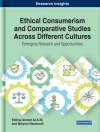Social problems affect everyone. Because so many actual and potential problems confront us, it is often difficult to decide which ones affect us most severely. Is it the threat of death or injury during a terrorist attack? Is it the threat caused by industrial pollution that may poison us or destroy our physical environment? Or does quiet but viciously damaging gender, age, class, racial, or ethnic discrimination have the most far-reaching effect? Do the problems of cities affect us if we live in the suburbs? Do poorer nations′ problems with overpopulation affect our quality of life?
The Encyclopedia of Social Problems offers an interdisciplinary perspective into many social issues that are a continuing concern in our lives, whether we confront them on a personal, local, regional, national, or global level. With more than 600 entries, these two volumes cover all of the major theories, approaches, and contemporary issues in social problems and also provide insight into how social conditions get defined as social problems, and the ways different people and organizations view and try to solve them.
Key Features
· Provides as comprehensive an approach as possible to this multifaceted field by using experts and scholars from 19 disciplines: anthropology, biology, business, chemistry, communications, criminal justice, demography, economics, education, environmental studies, geography, health, history, languages, political science, psychology, social work, sociology, and women′s studies
· Presents a truly international effort with contributors from 17 countries: Argentina, Australia, Canada, England, France, Germany, Greece, Hong Kong, India, Ireland, Italy, Kenya, New Zealand, Romania, Scotland, Turkey, and the United States
· Addresses social problems that are fairly new, such as computer crimes and identity theft, and others that are centuries old, such as poverty and prostitution
· Examines social problems differently from place to place and from one era to another
· Explains the perspectives and foundations of various social theories and offers different lenses to view the same reality
Key Themes
· Aging and the Life Course
· Community, Culture, and Change
· Crime and Deviance
· Economics and Work
· Education
· Family
· Gender Inequality and Sexual Orientation
· Health
· Housing and Urbanization
· Politics, Power, and War
· Population and Environment
· Poverty and Social Class
· Race and Ethnic Relations
· Social Movements
· Social Theory
· Substance Abuse
Readers investigating virtually any social problem will find a rich treasure of information and insights in this reference work, making it a must-have resource for any academic library.
A propos de l’auteur
Vincent N. Parrillo was born and raised in Paterson, New Jersey. He received his B.S. degree from Seton Hall University, his M.A.from Montclair State University, and his doctorate from Rutgers University. He teaches the following undergraduate courses: Minority Groups in America, Urban Sociology, Sociology of Socialization, Social Problems, Ethnic and Racial Conflict Resolution. Graduate courses include Racial and Ethnic Experiences and Sociology of Intercultural Communication.












